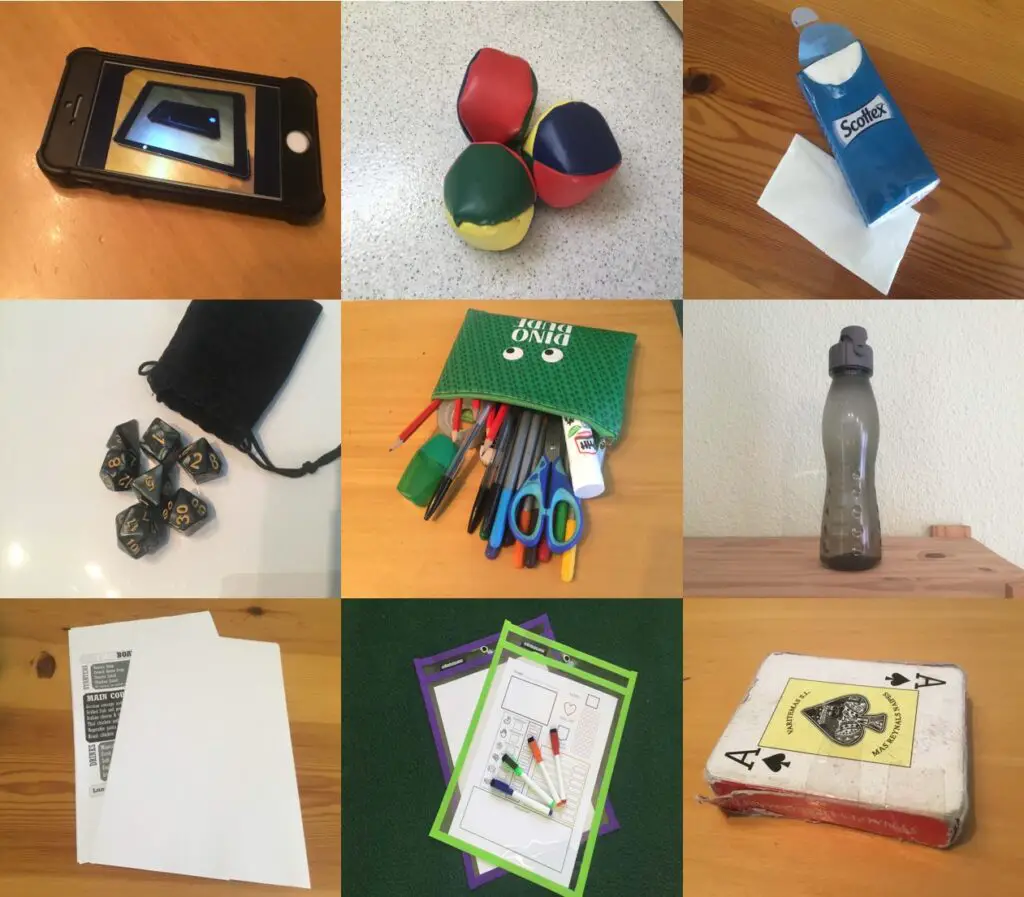Private EFL/ESL tutoring is a well-paid and flexible job for teachers who want to supplement their income or go full time as a freelancer.

Choosing your own timetable, getting to know your students on a deep level, and planning lessons without the restrictions of a school or institute make it attractive to many. Including myself. I’ve been a private EFL/ESL tutor in Spain since 2016, and in 2020 I made it my full-time job.
In almost every country, the hourly rate for private classes is higher than in language academies, government programs, and even private schools.
Learn more about earnings in different countries by checking out my free resource: How Much Do TEFL & TESL Teachers Make? Countries compared.
But it’s not all sunshine and roses. When you branch out on your own, you have to face problems with little support.
You have to figure out all sorts of things, like qualifications, attracting students, deciding where and for how long classes should be, as well as making sure you get paid for the lessons you give. Not to mention planning and delivering all those classes.
It’s intimidating. But this guide will help you with the process. Whether you’re just looking to do a few classes on the side, or setting up as self-employed, there’ll be something in here for you.
Note: this article doesn’t talk about what you should teach, or how to teach it. That’ll be in another guide coming soon.
Legal requirements to start EFL/ESL tutoring
First of all, you have to make sure you’re legally allowed to be a private EFL/ESL tutor.
Please note, I’m not a lawyer, and this is not official legal advice. Consult a registered lawyer if you have doubts about your situation.
If you’re planning on becoming an ESL teacher in your home country, and you’re at least 18 years old with no criminal record, I can’t see any reason why you can’t set up as a self-employed freelancer.
Doing it abroad as an EFL teacher is more difficult. Most countries require you to be employed before issuing a work visa, so self-employment is not legally possible.
If you’re an EU citizen, you can travel to another EU member state and set up as a freelancer.
When the UK was leaving the EU, I moved to Spain and got my documents sorted before Brexit rules kicked in. If I wanted to do it now, I couldn’t.
In some countries, mostly in South America, TEFL teachers work without a visa. The authorities tend not to worry about it too much, but personally, I wouldn’t take the risk.
Additionally, in a few countries, such as Qatar, you can get a wealthy family to sponsor your visa while you work as a tutor to their children.
In general, though, unless you already have the rights to live and work in a country, it’s near enough impossible to go self-employed.

It’s not all doom and gloom. You can still be a private EFL/ESL tutor in almost any country in the world, as long as you also have some form of employment.
If you get hired by a language academy, you can split your time between working there and giving private classes on the side. Just check your employer is okay with you doing that. Usually, they won’t mind.
Qualifications needed to become a private EFL/ESL tutor
In theory, you can be an EFL/ESL tutor with no qualifications at all.
When I get new students, they never ask me what qualifications or experience I have. They just want to know if I’m a native English speaker.
This won’t be the case everywhere. I’m fortunate enough to live in a place where there are very few native English speakers, so I have almost zero competition.
If I were to move to a new location, I would make sure everyone knew about the qualifications I had. If you’re in a competitive market, or teaching ESL in an English-speaking country, you’ll definitely need some certification.

A TEFL or TESL certificate is the minimum you should have. 120 hours is the industry standard, any less isn’t worth much. Fortunately, it doesn’t take too long to get one.
A CELTA or level 5 TEFL certificate can put you above the rest, and any university degree related to education will be a plus.
To get 15% off a full range of quality online and in-person TEFL qualifications, head to International TEFL and TESOL Training and help out this site.
Attracting students and getting your first class
Once you’ve got your qualifications, the next step is to get your first students. You have a few options for this, and I’d recommend trying them all.
The first way is to set up an online presence. Sign up to tutoring agencies, e.g. Tutoroo, create a LinkedIn profile, or even start your own website. These methods are especially important if you’re planning on teaching online.
Next, create a flyer or poster advertising your services. Take it to local schools, universities, and libraries and ask if they can put it on a noticeboard. Remember to include all your contact details. Send a digital copy around local Facebook groups.
The final way is to get into the community. Word of mouth will be your most powerful resource in the long run, but it takes a while to take effect. Make contacts in your local area, especially in places of education, so they can point anyone looking for private lessons in your direction.
You may not get a flood of students at first. But if you stay in one place for long enough, word will get around, and if you give great classes, people will recommend you to their friends and family.
Nowadays, I get all of my new students through word of mouth and the reputation I’ve built in my community.
For more details on how to attract more students, read my in-depth article: How to Get Private EFL/ESL Classes: Quickly find students.
How long should private EFL/ESL classes be?
Really, class can take anywhere from 20 minutes to 2 hours depending on the needs of your students.
An hour usually works best. It’s easy to remember, fits in with most people’s expectations, and is long enough for you to get plenty of learning done without getting tired.
However, it’s not always as simple as that. If you’re teaching online, classes are often shorter. And if you have older students, or doing project-based classes, you may want to extend the duration.
If you’re travelling between classes, you won’t want short lessons, as you’ll end up spending most of your time going from one place to another when you should be teaching.
To make sure you get the right class duration for your students, check out my full guide: How Long Should Private EFL/ESL Classes Be: Tips included.
My private in-person classes range from 45 to 90 minutes and I find them all a suitable length.
How much should you charge for EFL/ESL classes?
This is a question which comes up a lot when people ask me about EFL/ESL tutoring.
Getting it right is crucial to success. Charge too much and students won’t come to you, charge too little and you won’t make enough money.
It depends a lot on where the classes are taking place. In Singapore, for example, private classes go for $35-60 an hour, while in rural Colombia, you’re looking at $12-15 for a lesson of the same length.
In cities, you can charge more to offset the cost of living.
To see the hourly rates for private classes in countries around the world, head to How Much Do TEFL & TESL Teachers Make? Countries compared.
You also have to consider your experience and qualifications. If you don’t have either, you can’t charge the highest rates.
Being a native English speaker helps, as learners often value your accent over teaching ability, especially for conversation classes.

My advice is, don’t undersell yourself. Avoid undercutting the market just to get more students – in fact, being the cheapest tutor around can make people think you’re the lowest quality, too.
The best tip for getting the most money possible is to have classes with small groups. This way you can charge more per hour, with each student paying less. Groups of 3-4 are optimal.
Choose the right price for classes using my detailed guide How Much Should You Charge for Private EFL/ESL Classes?
Where should private EFL/ESL classes take place?
Ideally, you want to have private classes somewhere comfortable for both teacher and student(s).
If you’re teaching children, it should be in their home. Their parents should be around, so if anything goes wrong, they’re somewhere safe, and if they’re playing up, you can solve it right then and there.

With adults, you can be more flexible. I’ve had some classes in my own home, and others in a local café.
You don’t want to travel long distances between classes.
The town I live in is small, so it doesn’t take too long to get from one side to the other, and I don’t take classes outside the town.
If you’re in the city, it can take an hour to get to the next lesson.
Don’t do this. If it’s too far away, either ask them to move it to a closer location, or cancel the class. During all that time travelling, you could be teaching and earning more money.
Getting the location right is crucial, so read more on how to make the correct choices in my article Where Should In-Person Private EFL/ESL Classes Take Place?
Getting paid and dealing with cancellations
One of the biggest worries for EFL/ESL tutors is getting paid. Most of the time, you won’t have a formal contract, so you have to trust your students to pay you on time.
There’s one simple way to avoid getting fleeced – ask them to pay for classes upfront and don’t start lessons until they’ve given you the money. Cash and bank transfers are both great. In Spain, lots of my students pay me via the Bizum app, which is quick and easy.

I’ve found students are usually happy to pay for 4-6 classes ahead of time. Paying by the month works too. Some are happy to pay for even more.
I offer a free extra class if students pay me for 12 ahead of time, but most prefer to pay in smaller chunks.
Cancellations can be an issue too. There’s nothing worse than preparing a great lesson only for them to cancel last minute.
Make your cancellation policy clear from the beginning. The 24 hour rule is a good one. If they cancel less than 24 hours before the class, make sure they know you’ll still charge them for it.
Avoid payment problems forever by following the process in my in-depth guide Make Sure You Get Paid for Private EFL/ESL Classes.
Equipment EFL/ESL tutors need
There are several vital supplies every EFL/ESL private teacher should have. They include:
- Stationery
- A strong backpack
- A4 dry-erase pockets with marker pens
- A soft ball
- A deck of playing cards
- A tablet/phone
- Water bottle
- Dice
- Tissues
You may need more things depending on your students.
I particularly recommend the A4 dry-erase pockets. You can use them like mini-whiteboards and they’re cheap, lightweight and durable.
For a more detailed list of everything you’ll need, read my article 9 Items Every EFL/ESL Teacher Needs for Brilliant Classes.

Get the ball rolling
No matter what country you’re in, or what stage of your TEFL journey you’re at, the best way to start EFL/ESL private tutoring is to make good connections.
Finding your first few classes may be daunting, but once you get your name out there, classes should come rolling in. In fact, you could end up unable to accommodate all the interest.
When you’re set up, the best way of maintaining and growing your private lessons is to deliver the highest quality classes every time.
Catch up on all the articles in the Getting Started as a Private EFL/ESL Tutor guide:
How to Get Started as an EFL/ESL Private Tutor: Full guide
Requirements and Qualifications to Become an EFL/ESL Tutor
How to Get Private EFL/ESL Classes: Quickly find students
How Long Should Private EFL/ESL Classes Be: Tips included
How Much Should You Charge for Private EFL/ESL Classes?
Where Should In-Person Private EFL/ESL Classes Take Place?
Make Sure You Get Paid for Private EFL/ESL Classes
9 Items Every EFL/ESL Teacher Needs for Brilliant Classes









